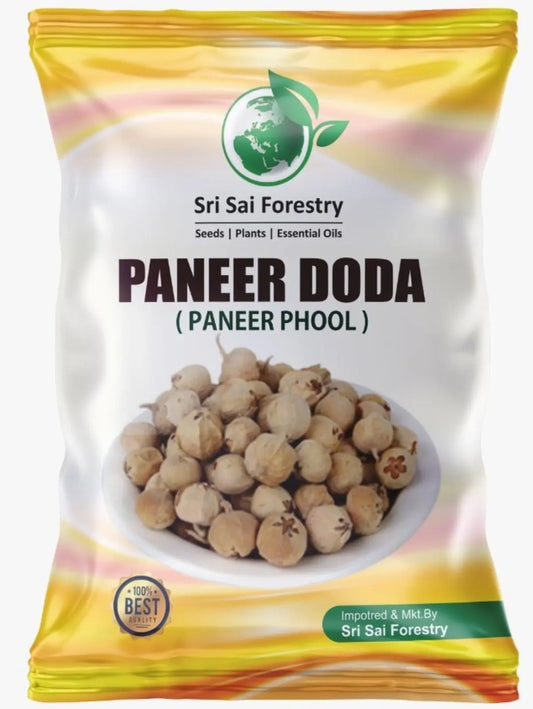-
Paneer Dodi | Paneer Phool For Diabetes
Regular price From Rs. 115.00Regular priceUnit price / per
Collection: Paneer Phool | Paneer Doda | Paneer Dodi | Withania Coagulans
Paneer Phool (Withania Coagulans), also known as Paneer Doda or Paneer Dodi, is a plant species belonging to the Solanaceae family. Its botanical name is Withania coagulans. It is primarily found in parts of India and is recognized for its various medicinal properties and nutritional benefits.
Key Characteristics:
-
Appearance: The plant has green, fleshy, and small berries that resemble small pea-sized fruits. The plant itself is a small shrub.
-
Taste: The fruits are mildly bitter, and the plant's different parts (especially the roots and fruits) are used in traditional medicine.
Uses and Benefits:
-
Traditional Medicine:
-
Paneer Phool is considered a natural coagulant and is used in Ayurvedic and folk medicine to treat a variety of ailments.
-
It is often used to curdle milk, which is why it's sometimes called a natural milk coagulant.
-
The plant is also believed to have properties that can help in digestive issues, kidney disorders, and blood sugar regulation.
-
-
Herbal Remedies:
-
The fruits and seeds are used to prepare herbal remedies aimed at improving liver health, treating gastritis, and indigestion.
-
In some regions, the plant is believed to have a mild anti-inflammatory effect, which makes it useful in the treatment of arthritis and other inflammatory conditions.
-
-
Nutritional Value:
-
The plant is often valued for its high alkaloid content, which is thought to contribute to its therapeutic effects.
-
Common Names:
-
English: Withania Coagulans
-
Hindi: Paneer Phool, Paneer Dodi, Paneer Doda

